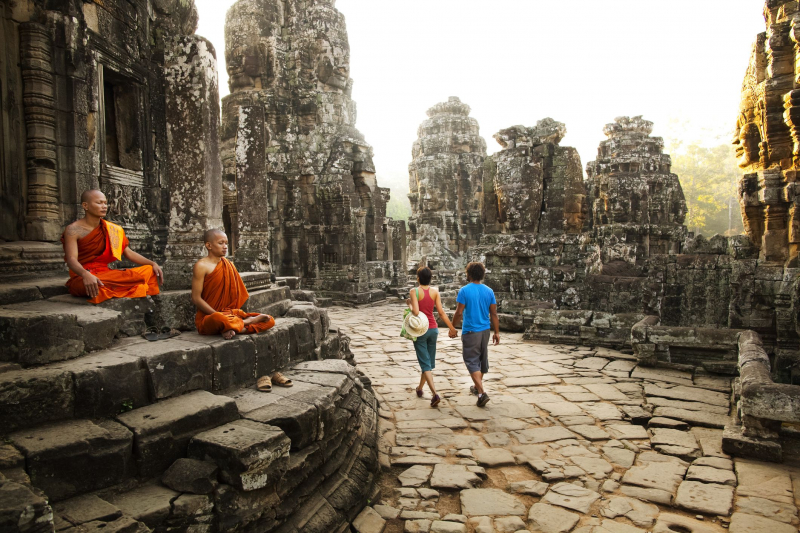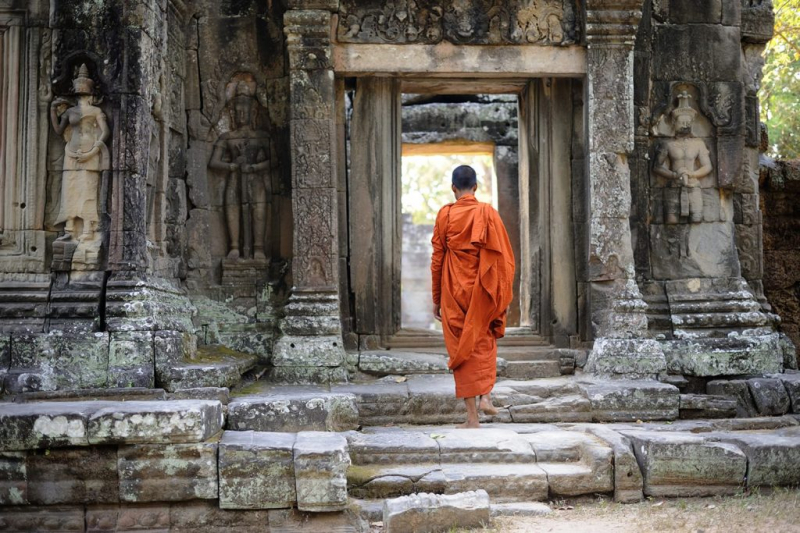Entering Wat (Temple) and Interacting with Monks
Theravada Buddhism predominates among Cambodians. Cambodian society has benefited greatly from the contributions of Buddhist monks. The teachers and counselors are frequently monks. The Wat serves as the hub of the neighborhood. The majority of Cambodian communities have a wate. Wat is also present in many communities of Cambodian Americans. Some Wats are simply apartments that have been transformed. When visiting a wat or conversing with a monk, keep in mind the following dos and don'ts:
- Shoes or sandals must be removed before entering a wat regardless of one’s status in society; this includes the king.
- Visitors should be appropriately attired. Men should wear shirts and pants; they should never go shirtless or in shorts. Women should not wear short skirts, low-cut or open dresses that reveal the body, very colorful clothing, or too much perfume.
- Inside the Wat, visitors sit with their legs bent and both feet tucked to the side, saying Som Pas and bowing to the floor three times.
- Women cannot touch a monk. If a woman wants to hand something to a monk, the object should be placed within reach of the monk, not handed directly to him. This restriction even applies to a monk’s mother.
- Monks sit on a platform or raised seat above the laity. However, if there is no platform or raised seat, monks are also allowed to sit on the floor or mat, if they sit upon a pillow or folded blanket, which symbolizes a higher seat.
- Visitors always sit with their legs bent and feet tucked under when the monks are seated.
- Never stand when talking to seated monks. It shows grave disrespect.
- A Buddha statue, well kept or in ruins, is a sacred object, so do not touch it or stand on the altar.
- A monk can be addressed with “Venerable” followed by his first name or whole name (last and first).
- Monks eat only breakfast and lunch, which have to be finished before noon. In the evening, monks are allowed to drink water, milk, or tea. Any schedule or engagement should take this restriction into account.
- Food intended for monks should not be tasted before the monks eat it.









